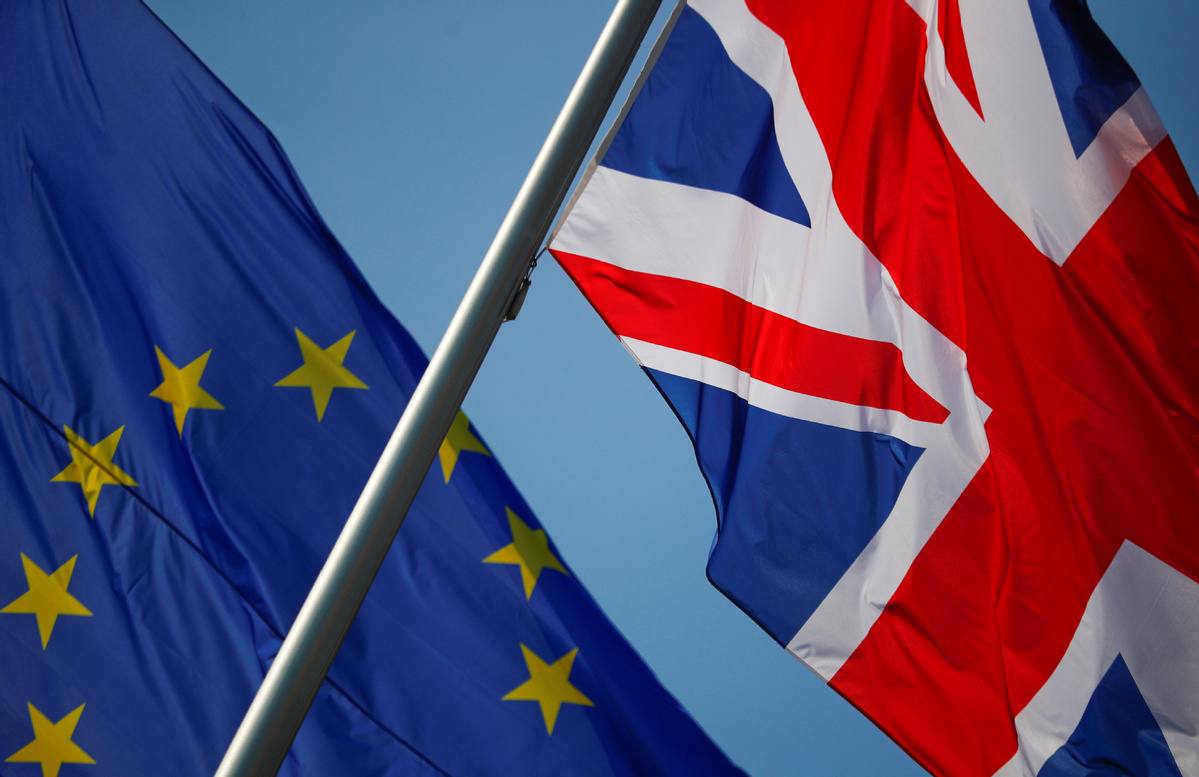Urgency on trade deals could weaken UK's hand
By Earle Gale in London | China Daily Global | Updated: 2020-08-17 11:03

The United Kingdom and Japan are edging toward a trade deal to replace the one they had when Britain was in the European Union and a party to an arrangement between the bloc and the Asian nation.
The new deal will be similar to the old one, with a tweak here and a caveat there, and is expected to be inked within the month.
But with the UK having promised its citizens a flurry of such post-Brexit trade deals, and with no others on the horizon six months after the nation's Jan 31 exit, critics wonder what went wrong.
And if straightforward deals are so hard to find, they say, what hope can there be for a long-awaited deal with China-the world's second-largest economy?
The authors of a new report think they know what happened.
In the report, "Trade and Regulation After Brexit", the think tank Institute for Government said the UK wasted three years and failed to decide what it wanted from negotiations.
A lack of decisiveness, coupled with increasing desperation to deliver deals, means the UK could "easily fall victim" to other nations that will threaten "to collapse …talks if they do not get what they want", the study's authors said.
The UK could be "pushed into making concessions it shouldn't", which would make it vulnerable to challenges at the World Trade Organization, they added.
James Kane, the report's main author, said: "The UK's domestic regulatory system is internationally recognized as excellent. But the government risks compromising it by rushing into trade negotiations unprepared."
The newspaper Independent said a recent dispute between London and Washington about whether the United States should be allowed to sell chlorinated chicken in the UK-a dispute that stalled a proposed US-UK trade deal-will be played out again and again as the UK is pressured into accepting things it doesn't like.
Maddy Thimont Jack, a senior researcher for the study, said: "Three years ago, we warned that the government had not set up the necessary structures for effective decision-making on key trade policy issues. The government did not heed that warning then, but it now needs to move urgently to put them in place. Otherwise, it will find itself losing control of trade and regulatory policy to better-prepared partners."
The newspaper Evening Standard said a promise from Cabinet minister Michael Gove that the UK would, once out of the EU, be able to reward farmers for using fewer chemicals is the sort of thing that is under threat.
The paper said that, for example, imports of crops grown cheaply because of the use of bee-killing pesticides grudgingly allowed under the terms of a future trade deal would pressure UK farmers to do the same.
With the UK's current high standards at risk if the wrong deals are struck, the UK sits deadlocked with the EU. Talks with the US are also in a quagmire, while those with most other nations haven't begun.
The lack of progress is in stark contrast with the words of Brexit-supporting Prime Minister Boris Johnson, who said when trying to muster support for his vision of a UK outside the EU: "I think there is a huge opportunity. Do free-trade deals, believe in ourselves."
The Treasury has since admitted a trade deal with the US would add just 0.2 percent to the UK's GDP, and a pending deal with Japan would likely be worth no more than 0.07 percent.
The loss of the deal the UK had with the EU is expected to cost around 5 percent.
The Department for International Trade is putting a priority on deals with the EU, the United States, Japan, Australia and New Zealand.
It believes that a deal with the EU could weigh in at £673 billion ($881 billion), and one with the US could be worth £233 billion, while a deal with Japan could be worth £30 billion; Australia, £18.6 billion; and New Zealand, £3 billion.
According to the UK's Office for National Statistics, China, as the UK's third-largest export market in 2019 after the US and EU, accounted for 4 percent of exports at a value of £31 billion.
CNN Business said the UK's decision to ban Huawei from participating in its 5G networks endangers that relationship-which saw Britain become, in 2015, the first major Western economy to join the Asian Infrastructure Investment Bank, and London become a major hub for renminbi trading.
























